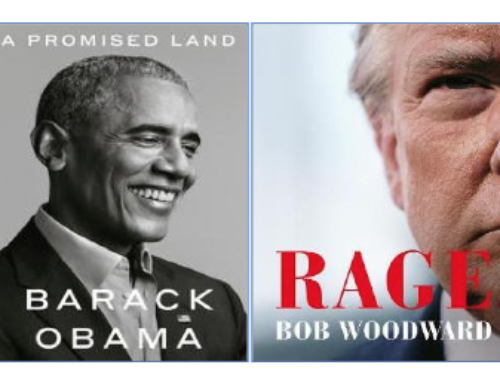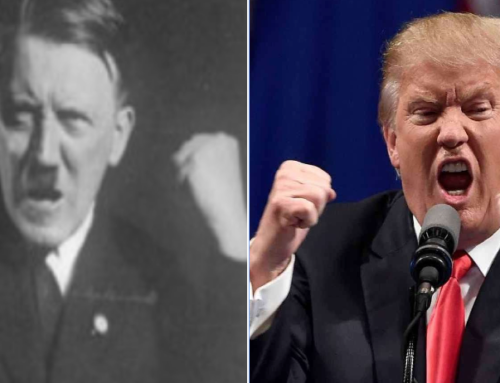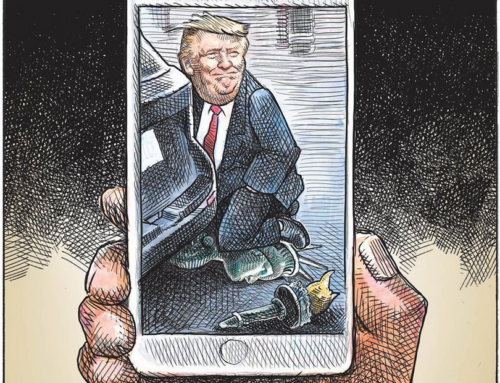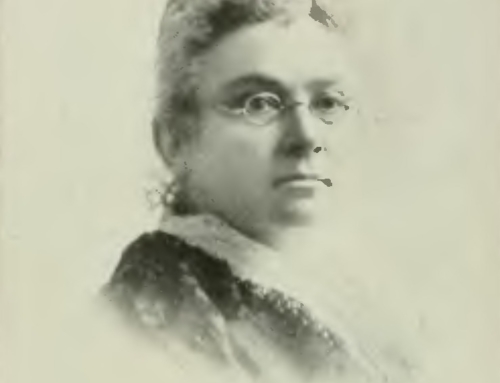The only three things you need to observe in comparing candidates
- Mental capability (as defined by Jaques & Cason)
- Emotional intelligence (as defined by Daniel Goleman)
- Knowledge (as defined by you or any objective person)
In case you didn’t mark the calendar, the first US Presidential debate is Monday, September 26th, 9pm (EDT)
(4 minute read)
The post-debate media coverage will drone on and on about the optics, the impression, the hype-points and the true-or-false scorecard, but little of that has anything to do with the true qualifications required in a president. Optics make an impression, we get that. Politicians lie, we get that. Poll data can be wrong, we get that. And despite all the talking-head analysis, we know the magnitude of decision-making in the Oval Office demands much more: extraordinary mental capability, high emotional intelligence and an unlimited capacity for knowledge.
Each of these prerequisites can be measured while sitting in your living room watching the debate. Let’s briefly consider them.
Measure #1: Mental capability
Imagine a nation in which all citizens were able, given enough encounters, to evaluate the level of potential capability of each and every one of the candidates running for election in political campaigns, by observing certain manifest features of their performances when engaged in spontaneous political debate, as for example, on television. – Human Capability by Dr. Elliott Jaques and Kathryn Cason.
[1]I wrote an earlier blog about the research of Dr. Elliott Jaques and Kathryn Cason and their book, Human Capability so I will only mention here the basics you need for Monday night’s debate. For a deeper understanding of this seminal theory, I refer you to the earlier blog and the book.
When two people are debating anyone can assess the mental capability of each candidate by observing his or her thought process. As Jaques states, there are four, and only four, mental processes that we humans use to express our thinking, and they reveal the mental capability of the person.[2]
- Declarative processing: A person explains his or her position by bringing forward a number of separate reasons for it. The reasons are separate in the sense that each is brought forward individually, on its own, and no connection is made with any other reasons (see earlier blog for examples).
- Cumulative processing: A person explains his or her position by bringing together a number of different ideas, none of which is sufficient to make the case, but taken together they do (see earlier blog for examples).
- Serial processing: A person explains his or her position by constructing a line of thought made up of a sequence of reasons, each one of which leads on to the next, thus creating a chain of linked reasons (see earlier blog for examples).
- Parallel processing: A person explains his or her position by examining a number of other possibilities as well, each arrived at by means of serial processing (see above). The several lines of thought are held in parallel and can be linked to each other (see earlier blog for examples).
These findings are based on extensive research by Jaques but the application of the theory is quite straightforward. The way a person answers a question is directly linked to their mental processing capability. If we remove personal and ideological bias we can assess at what level each candidate mentally processes ideas, information and knowledge and expresses them. Are they primarily declarative, cumulative, serial or parallel thinkers?
Measure #2: Emotional intelligence
Generally speaking, emotional intelligence is the ability to identify and manage our own emotions and the emotions of others and to have the ability to harness emotions so that they do not undermine thinking and problem solving.
In the early 1990s, Daniel Goleman pioneered the groundbreaking theory of emotional intelligence in his first book Emotional Intelligence: Why it can matter more than IQ (he has since written many more books on the subject).
Goleman’s brilliant report from the frontiers of psychology and neuroscience offers startling new insight into our “two minds”—the rational and the emotional—and how they together shape our destiny. Goleman delineates the five crucial skills of emotional intelligence, and shows how they determine our success in relationships, work, and even our physical well-being. The best news is that “emotional literacy” is not fixed early in life. Every parent, every teacher, every business leader, and everyone interested in a more civil society, has a stake in this compelling vision of human possibility.[3]
Goleman sets out how a high IQ when not balanced with a high EQ can be detrimental to leadership.
The emotional mind is far quicker than the rational mind, springing into action without pausing even for a moment to consider what it is doing. Its quickness precludes the deliberate, analytic reflection that is the hallmark of the thinking mind.
Actions that spring from the emotional mind carry a particular strong sense of certainty, a by-product of streamlined, simplified way of looking at things that can be absolutely bewildering to the rational mind. When the dust settles, or even in mid-response, we find ourselves thinking, “What did I do that for?” – a sign that the rational mind is awakening to the moment, but not with the rapidity of the emotional mind.[4]
In the debate we can easily compare the balance and control each candidate is able to bring to the challenge of being President of the United States. Balance does not mean no emotion, it means the proper level of emotion according to the message and situation. In many ways, emotional intelligence is more important in a president than IQ.
Measure #3: Knowledge
Some ancestoral king probably said, “Knowledge is king,” but whether it was royalty, a scholar or an astute woman, it’s axiomatic that if you want to be more than a tyrannical king you better have a wealth of knowledge readily available to support your mental processing capability. This is particularly relevant in the modern world where there are few kings and too much information.
The smaller the mind the greater the conceit. – Aesop, 6th BC
If mental capability is the engine then knowledge is the fuel without which no one gets very far. So watch for the depth and breadth of each candidates knowledge. A president short on knowledge will leave the country on the short-end of almost everything.
You be the judge
Set aside ideological and personal bias and observe, measure and rate each candidate on these three critical categories on a scale of 1-10 (10 being excellent). Then pick the winner.
Footnotes:
- Human Capability by Dr. Elliott Jaques and Kathryn Cason, Preface ix
- Ibid, p. 30
- Emotional Intelligence: Why it can matter more than IQ, Bantam Books, 1995; Amazon book description
- Ibid, p.291







Leave A Comment